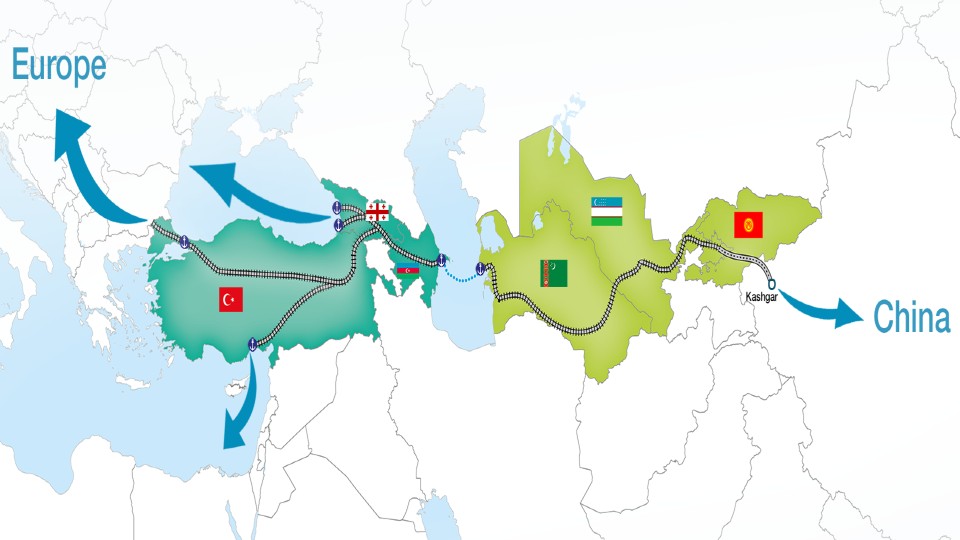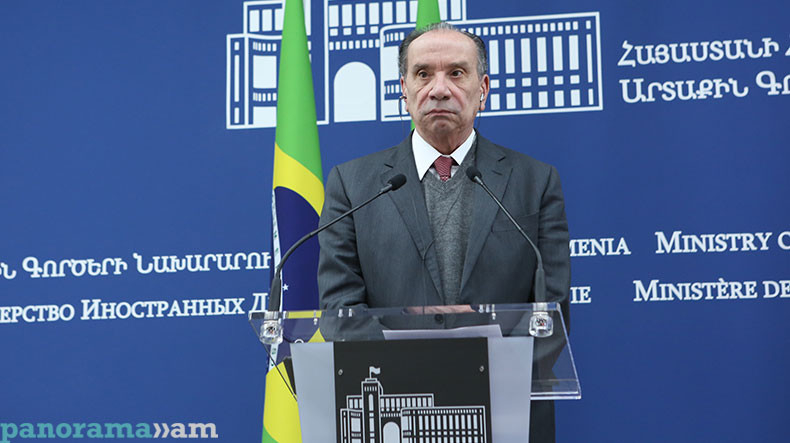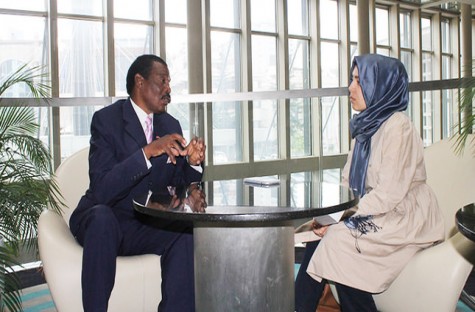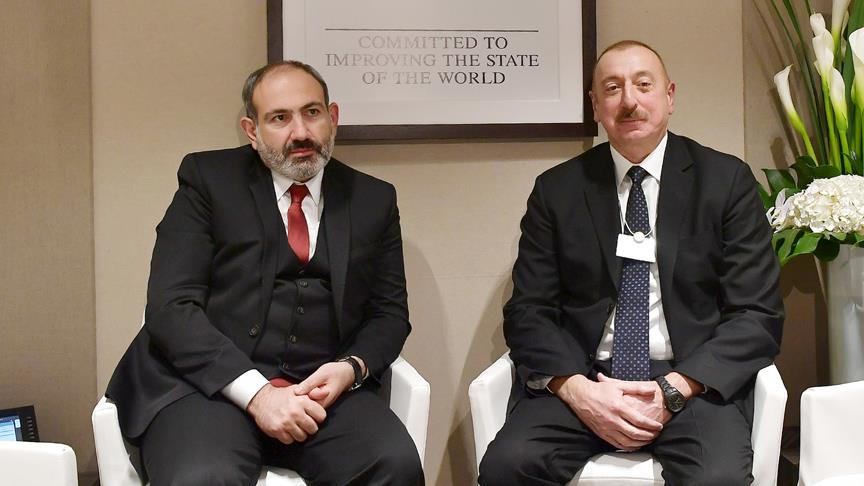Between 20 and 22 July 2015, Donald Tusk, the President of the European Council, paid visits to Armenia, Azerbaijan and Georgia in the South Caucasus following the fourth Eastern Partnership summit held in Riga on 21-22 May 2015. During these visits, Donald Tusk underlined the importance of the improvements in the three south Caucasus countries in trade, energy sector, transportation, mobility and reforms. He stressed the need for dialogue for the resolution in Nagorno-Karabakh, Abkhazia and South Ossetia.[1]
Donald Tusk’s first stop was Armenia on 20 July. In a joint press conference with Armenian President SerzhSargsyan. Tusk emphasized EU’s commitment to deepening of the cooperation between the EU and Armenia. He underlined the importance of cooperation for the realization of democratic reforms, economic growth, regional integration, a better business-investment climate and sustainable development, and for the effective implementation of readmission and visa facilitation.[2] Donald Tusk also underscored that the Nagorno-Karabakh conflict is one of the essential issues in the region and indicated that the EU supports settling the conflict by peaceful means within the framework of the OSCE Minsk Group.
Donald Tusk’s second stop was Georgia. Following a meeting with the Georgian President Giorgi Margvelashvili, Tusk remarked the importance of bilateral relations with Georgia and the progress of the implementation of the Association Agreement which would significantly advance cooperation between Georgia and the EU. Territorial integrity and sovereignty were overriding issues in Tusk’s remarks. In Georgia Donald Tusk also met with the Prime Minister Irakli Garibashvili. Following this meeting, Tusk again underlined Georgia’s territorial integrity, as well as Georgian-Russian relations and Abkhazia and South Ossetia conflicts. As to Abkhazia and South Ossetia conflicts, Tusk’s stressed the need for EU support for the resolution of these conflicts. He also mentioned the visa-free travel as another overriding issue.[3]
Tusk visited Azerbaijan on 22 July. Following his meeting with the President of Azerbaijan Ilham Aliyev, he underscored the Southern Gas Corridor as a current and much discussed topic that bears at most significance and signifies the importance of Azerbaijan as a strategic partner in the energy field. Tusk indicated that the EU does not recognize Nagorno-Karabakh as an independent state and supports the territorial integrity and sovereignty of Azerbaijan. Visa-free travel was also among the topics which were discussed.[4]
Overall, Donald Tusk’s visit to Armenia, Azerbaijan and Georgia demonstrates European Union’s continuing interest in the South Caucasus. What Donald Tusk’s visit reveals is that while EU expresses its wish to gain an influence in the region by acting as a facilitator for the resolution of the conflicts in the region and promoting democracy and human rights, Armenia, Azerbaijan and Georgia are willing to balance Russia's influence by countering it with that of the EU.
Furthermore, the increasing attention of the EU towards the region clearly shows that EU recognizes its strategic importance. The region connects Asia and Europe and is also home to a considerable amount of energy resources, especially in Azerbaijan which the EU wishes to utilize in the future. In addition, the region is not only important in strategic concept but also a door to Central Asia and Iran which is another energy resource. Yet, if the EU wills to build profitable relations with the region, undoubtedly there still remains much work to be done. EU’s consistency, impartiality and respect to international law are the keys to the establishment of better relations with the countries in the South Caucasus. Unfortunately, until now the EU has failed to register such an image in the region.
[1] Gotev, Georgi (22 July 2015): Tusk tour focuses on frozen conflicts.EurActiv. http://www.euractiv.com/sections/europes-east/tusks-caucasus-tour-focuses-frozen-conflicts-316519
[2] European Council (20 July 2015): Remarks by President Donald Tusk following his meeting with the President of Armenia Serzh Sargsyan. http://www.consilium.europa.eu/en/press/press-releases/2015/07/20-tusk-remarks-meeting-president-sargsyan/
[3] European Council (21 July 2015): Remarks by President Donald Tusk following his meeting with the Prime Minister of Georgia, Irakli Garibashvili. http://www.consilium.europa.eu/en/press/press-releases/2015/07/21-pec-remarks-meeting-prime-minister-garibashvili/
[4] European Council (22 July 2015): Remarks by President Donald Tusk following his meeting with the President of Azerbaijan Ilham Aliyev. http://www.consilium.europa.eu/en/press/press-releases/2015/07/22-tusk-meeting-azarbaidijan/
© 2009-2025 Center for Eurasian Studies (AVİM) All Rights Reserved

 NEW OPPORTUNITIES AND INITIATIVES FOR THE MIDDLE CORRIDOR
NEW OPPORTUNITIES AND INITIATIVES FOR THE MIDDLE CORRIDOR
 THE BRAZILIAN MINISTER OF FOREIGN AFFAIRS HAS DISAPPOINTED ARMENIA
THE BRAZILIAN MINISTER OF FOREIGN AFFAIRS HAS DISAPPOINTED ARMENIA
 THE POPE AND GERMANY SELECTIVE OF TRAGEDIES, POLITICAL ANALYST SAYS
THE POPE AND GERMANY SELECTIVE OF TRAGEDIES, POLITICAL ANALYST SAYS
 THE OPENING OF HAGIA SOPHIA FOR WORSHIP: REACTIONS FROM THE WORLD COUNCIL OF CHURCES AND THE ARMENIAN CATHOLICOSATE OF CILICIA (ANTELIAS)
THE OPENING OF HAGIA SOPHIA FOR WORSHIP: REACTIONS FROM THE WORLD COUNCIL OF CHURCES AND THE ARMENIAN CATHOLICOSATE OF CILICIA (ANTELIAS)
 AZERBAIJAN-ARMENIA PEACE NEEDS STRATEGIC OUTLOOK AND PRAGMATIC STEPS
AZERBAIJAN-ARMENIA PEACE NEEDS STRATEGIC OUTLOOK AND PRAGMATIC STEPS






























